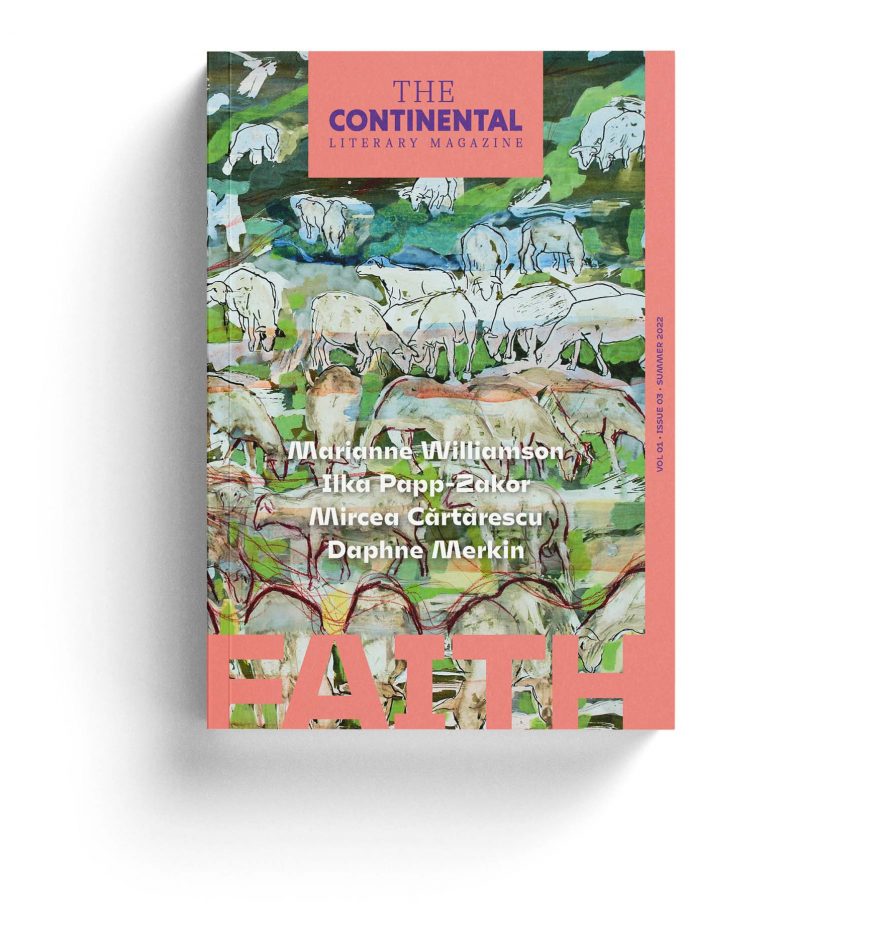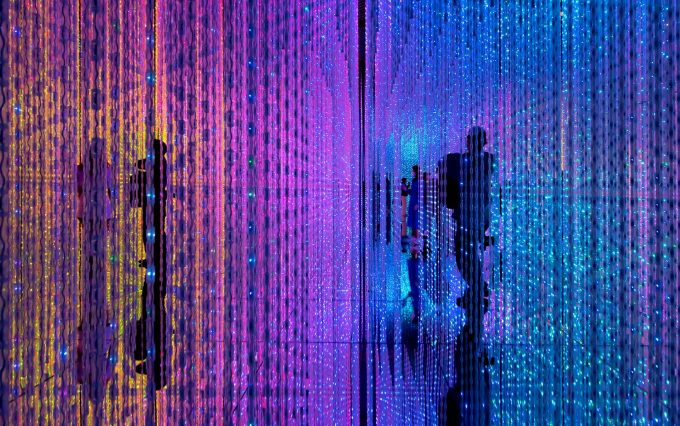
24th November 2022
Non-Fiction
13 minutes read
There Are More Things…
translated by Sean Cotter

24th November 2022
13 minutes read
What are the limits of my knowledge? They are present already in the word “knowledge” itself. Not only is our knowledge limited, but our idea of knowledge is limited, as well. In the same way, our idea of limit is narrow; it applies only to the interior of the limit, not its exterior. The limit of my knowledge, therefore, includes knowledge but not what is beyond knowledge, about which I know nothing. “The limits of my language are the limits of my world,” writes Ludwig Wittgenstein, meaning that language is our second skin, our second set of sensory organs: our other eyes, ears, and taste buds. By definition, any limit has its own limit, and those limits also have limits, and so on to infinity. We can imagine the world as a gradation of limits, in such a quantity that through endless cross-hatching, they constitute volume. But is this the world, or at least is it my world? And is the possessive the same in “my shirt” as in “my world”? Do I have a consciousness, or am I a consciousness? Do I have a world or am I a world?
What can I understand and what can I not? And why can I not understand what I cannot understand?
What is the border between the intelligible and the unintelligible?
Will I ever be able to understand what I currently cannot? And why is the unintelligible un-understandable? In how many ways do I not understand the unintelligible and for how many reasons? Is the unintelligible around me utter or a matter of degree? Is it a wall or a thickening fog? Nichita Stănescu wrote about the unintelligible, there where understanding existed, as loneliness, and about unintelligibility, there where understanding did not exist, as the loneliness of loneliness. But is there such a thing as unintelligibility, or is an unintelligibility rather the trace of my own limitations? I am a machine that changes chaos into cosmos, sensory space into logical space. But the immense space around me is not sensory, it is nothing you can sense, much less something I can make into words. First, my body transformed the imperceivable into the sensory; then, my mind changed the perceived, but unnamed, into names. But what can I change logical space into, in order to step upwards in knowledge, to move beyond this limit? Into what will I transform the names, further refining perception and thought? If I place a limit on my knowledge, the limit can only be infinite, like an infinitely thick cliff wall that surrounds us. For me, this idea is unbearable. Therefore, the limits must be successive, airy, porous, penetrable, like an infinite series of skins that adorn me without suffocating me.
Will I ever be able to extend the sensory zone that surrounds me? How could I? Can I add more sensors, or make them more powerful? The ant has a sensory zone of a few centimeters. Outside of this area, nothing affects it. Its form of knowledge is called survival. An ant does not need the stars to exist, or me to exist, as I look at it this moment. And yet it knows much more of our incognizable world than a parasitic worm, which in turn knows much more than a bacterium. Even the word “knowledge” grows, embryonically, along these steps. What are the great and useless things that I will never know, because I do not need them to survive, the way the ant does not need to know it lives on a planet? These things are always before my eyes, and yet I do not see them, they are before my mind and I do not understand them, just as the dreamer does not know he dreams. “There are more things between heaven and earth, Horatio, Than are dreamt of in your philosophy,” Hamlet says.
What does Hamlet know that Horatio does not, since philosophy does not know, but dreams?
I could say the same to the ant, the same thing my cat tells me, every day: “There are more things….” I—myself, my mind, my being, unintelligible to themselves—am one of them.
My cat has a wider sensory zone than an ant does, and it has an intuitive zone like a new level of knowledge. Out of the chaos of the world, my cat creates clear outlines, memorizes them, and uses them to continue to live. It has a much freer will than the ant does, such that you wonder if free will itself, the gratitude and grace of an individual being, independent of their background, is what we mean by knowledge. Minerals, plants, viruses, bacteria, worms are sooner thought, from the time the world began, from the point when the laws of physics were born, than they think, themselves. The more you think individually, the freer you are from your surroundings; and the more you can begin to know. A cat senses and intuits the surrounding space. It doesn’t see books or clouds, nor other countless things between heaven and earth. Its philosophy is just as much a dream as Horatio’s. I hold it in my lap as I am writing these lines, and sometimes it raises its clear eyes toward me. But it does not truly see me. For it, I am a phantom, whose world, although near, is inaccessible, just as you cannot touch someone on the other side of a thin wall of glass. It sees me, but it does not know me.
It does not comprehend my reasons, it is not impressed by my powers, however immense.
I can turn the light on, for example, in the room where we are, I can drive a car, I can run the water in the bath. I pet my cat, and it responds gratefully, but we are not communicating, and we will always be foreign to each other.







